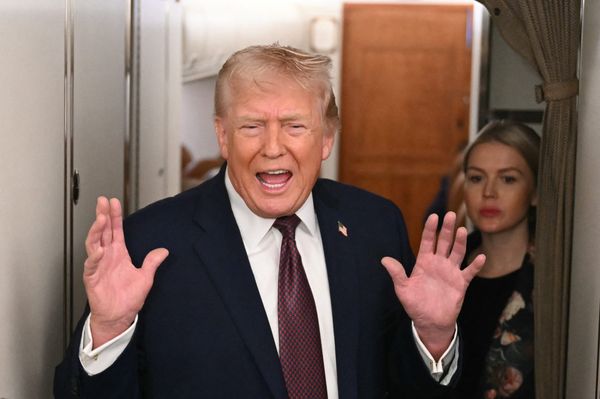
Japan’s prime minister, Fumio Kishida, has urged senior members of his party to sever their ties with a controversial religious group after his approval ratings nosedived to their lowest level since he took office last year.
Kishida and his Liberal Democratic party (LDP) have been rocked by revelations that dozens of party members have connections to the Unification church. Media reports say they have attended events organised by its affiliates, paid fees or received support during election campaigns.
Support for Kishida’s cabinet has plummeted to 36% from 52% in mid-July, according to a poll by the Mainichi Shimbun – the lowest level since he became prime minister last October. The newspaper said 54% disapproved of the cabinet, up 17 points since last month.
In more bad news for Kishida, 87% of respondents believed the relationship between the LDP and the church were either “extremely” or “somewhat” problematic.
The church has been in the spotlight since the fatal shooting of Abe Shinzo. The suspect is said by police to have targeted the former prime minister over his links to the church, which he blamed for bankrupting his family.
Kishida, who is working from home after testing positive for Covid-19 this week, insisted that no organisational relationship existed between the LDP and the church, but said that lawmakers needed to “cut their ties with it going forward”.
He has also denied that the organisation – known for its mass weddings and ultra-conservative views, including opposition to same-sex marriage – had influenced government policy.
The chief cabinet secretary, Hirokazu Matsuno, told reporters this week: “We should pay sufficient attention to relationships with organisations that have come in for criticism in society and address people’s concerns.”
The LDP’s secretary general, Toshimitsu Motegi, suggested a new party code of conduct would demand that members end their relationship with the church, whose members are colloquially known as Moonies. “We will include not having any relationships with groups deemed problematic in society,” he said.
The church, officially called the Family Federation for World Peace and Unification, was founded in South Korea in 1954 by the self-declared messiah, Sun Myung Moon. It has been active in Japan since it was encouraged to join the country’s anti-communist movement by Abe’s grandfather and postwar prime minister, Nobusuke Kishi.
Tetsuya Yamagami, who is accused of shooting Abe dead with a homemade gun during an election campaign speech in early July, has allegedly told police that his mother had plunged the family into poverty after making huge donations to the church.
Kishida attempted to quell public anger over the controversy by removing ministers with links to the church in a cabinet reshuffle earlier this month. However, at least five members of his current cabinet have ties to the organisation, including the health and internal affairs ministers, along with dozens of other senior officials.
They include Koichi Hagiuda, the LDP’s new policy chief, who admitted he had visited a facility linked to the church with an LDP candidate ahead of the recent upper house elections.
A survey by the Kyodo news agency found that 106 of Japan’s 712 lawmakers have had some connection with the group, with nearly 80% of them belonging to the LDP.
Critics describe the Unification church as a cult that has faced legal action over spiritual sales, in which people are talked into buying expensive jars and other items that, they are told, will relieve them of bad “ancestral karma”.
The controversy has also overshadowed arrangements for a state funeral for Abe late next month, with 53% of respondents saying they opposed the service, which will be paid for with taxpayers’ money.







